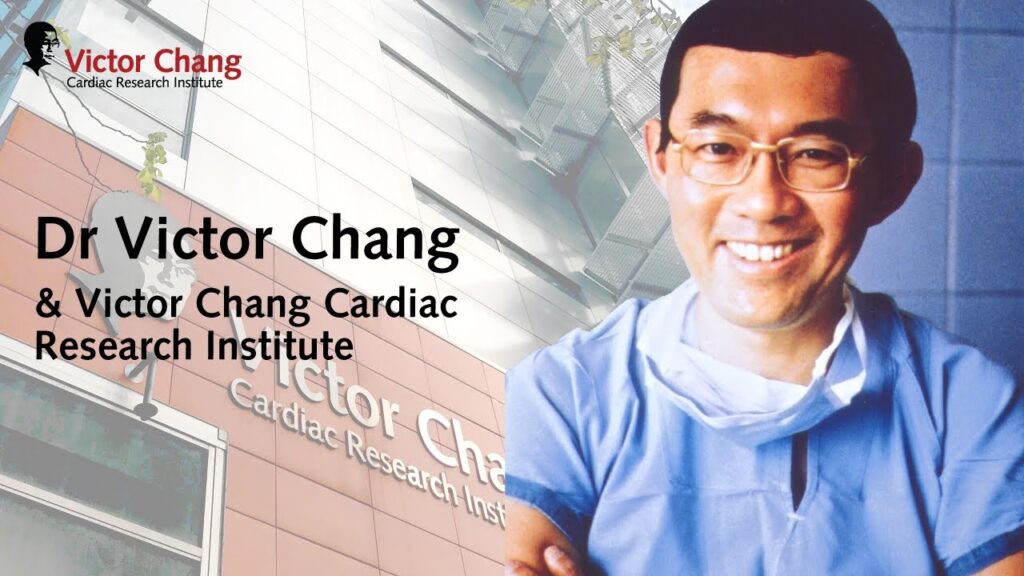Dr. Victor Chang was a name that resonated throughout the medical community and beyond, not only for his groundbreaking work in heart surgery but also for his humanitarian spirit. His life and career left an indelible mark on the field of cardiothoracic surgery, making him a celebrated figure in medical history. This article delves into the life, achievements, and lasting legacy of Dr. Victor Chang, exploring his contributions to medicine and the impact he continues to have today.
Table of Contents
Who Was Dr. Victor Chang?
Early Life and Education
Dr. Victor Chang was born on November 21, 1936, in Shanghai, China, to Australian-born Chinese parents. His family moved to Hong Kong when he was young, and it was there that he developed an early interest in medicine. His decision to pursue a career in surgery was influenced by the death of his mother from cancer when he was just 12 years old. Determined to make a difference, Chang pursued his medical education at the University of Sydney, where he graduated with a Bachelor of Medicine and Bachelor of Surgery in 1962. His early experiences and education laid the foundation for what would become a remarkable career in medicine.

The Path to Cardiothoracic Surgery
After completing his medical degree, Dr. Chang undertook further training in surgery in both England and the United States. It was during his time in London, under the mentorship of renowned surgeon Dr. Aubrey York Mason, that Chang developed a keen interest in cardiothoracic surgery. He honed his skills and gained invaluable experience, particularly in heart and lung transplantation, which would later become his area of expertise. This period of rigorous training and specialization prepared Chang for the pioneering work he would later undertake in Australia, where he would eventually return to practice.
The Achievements of Dr. Victor Chang
Pioneering Heart Transplantation
One of Dr. Chang’s most notable achievements was his pioneering work in heart transplantation. In 1984, he successfully performed Australia’s first heart transplant at St. Vincent’s Hospital in Sydney. This groundbreaking surgery marked the beginning of a new era in Australian medicine, and Dr. Chang quickly became known as a leading figure in the field of heart surgery. His success in heart transplantation was not only a testament to his surgical skill but also his dedication to pushing the boundaries of what was possible in medical science. Chang’s work in this area significantly improved the success rates of heart transplants and saved countless lives.
Development of the Artificial Heart Valve
Dr. Chang’s contributions to medicine extended beyond transplantation. He was instrumental in the development of the artificial heart valve, a device that has since been used to treat patients with severe heart valve diseases. His innovative approach to heart surgery and his commitment to improving patient outcomes led to the creation of this life-saving technology. The artificial heart valve, which Chang helped design and refine, remains a critical tool in modern cardiothoracic surgery. It has been used in thousands of surgeries worldwide, offering a new lease on life to patients with otherwise inoperable heart conditions.
The Legacy of Dr. Victor Chang
Establishing the Victor Chang Cardiac Research Institute
In 1994, three years after his untimely death, the Victor Chang Cardiac Research Institute was established in Sydney to honor Dr. Chang’s legacy and continue his work. The institute has since become one of the world’s leading centers for cardiac research, focusing on the prevention, diagnosis, and treatment of heart diseases. Dr. Chang’s vision for a world-class research facility dedicated to cardiovascular health has been realized through the institute’s ongoing work. The research conducted at the institute continues to advance our understanding of heart disease and improve the lives of patients around the globe, ensuring that Dr. Chang’s impact on medicine endures.
Impact on Medical Education and Training
Dr. Chang’s influence also extended to medical education and training. Throughout his career, he was a mentor to many young surgeons, sharing his knowledge and passion for cardiothoracic surgery. He believed in the importance of rigorous training and hands-on experience, and he played a significant role in shaping the next generation of heart surgeons. His commitment to education is reflected in the ongoing work of the Victor Chang Cardiac Research Institute, which not only conducts cutting-edge research but also provides training and development opportunities for aspiring medical professionals. Dr. Chang’s legacy lives on through the many surgeons he trained and the lives they continue to save.
Challenges and Controversies
Overcoming Barriers in Medicine
Dr. Chang faced numerous challenges throughout his career, not least of which was the cultural and racial discrimination he encountered as an Asian surgeon working in Australia and internationally. Despite these barriers, Chang remained focused on his work and became a trailblazer in his field. His determination to succeed in the face of adversity serves as an inspiration to many, highlighting the importance of perseverance and resilience in achieving one’s goals. Dr. Chang’s success story is a powerful reminder that dedication and excellence can overcome even the most significant obstacles, and his legacy continues to inspire future generations of medical professionals.
The Tragic End and its Aftermath
Dr. Victor Chang’s life was tragically cut short on July 4, 1991, when he was murdered in a failed extortion attempt. His death shocked the nation and led to an outpouring of grief from the medical community and the public. The loss of such a pioneering figure was deeply felt, but it also served to galvanize efforts to continue his work. The establishment of the Victor Chang Cardiac Research Institute was one of the many ways in which his colleagues and admirers sought to honor his memory and ensure that his contributions to medicine would not be forgotten.
The Continuing Influence of Dr. Victor Chang
Contributions to Global Cardiovascular Health
Dr. Chang’s influence extends far beyond Australia. His work in heart transplantation and the development of artificial heart valves has had a global impact, improving cardiovascular health outcomes around the world. Surgeons and researchers across the globe continue to build on the foundations laid by Dr. Chang, and his techniques and innovations are still in use today. His legacy is not just one of personal achievement but also of global advancement in the field of cardiothoracic surgery. Dr. Chang’s contributions have helped to save and improve the lives of countless individuals, making him a true global hero in the fight against heart disease.

Inspiring Future Generations
Dr. Victor Chang remains an inspirational figure for aspiring medical professionals, particularly those interested in cardiothoracic surgery. His story is one of passion, dedication, and a relentless pursuit of excellence. For those entering the field of medicine, Dr. Chang’s life and work serve as a powerful example of what can be achieved through hard work and a commitment to improving the lives of others. His legacy continues to inspire not only surgeons but also researchers, educators, and anyone dedicated to making a positive impact in the world. Dr. Chang’s influence will undoubtedly continue to be felt for generations to come, as new advancements in medicine build on the foundations he established.
Conclusion: The Enduring Legacy of Dr. Victor Chang
Dr. Victor Chang was more than a brilliant surgeon; he was a visionary who revolutionized cardiothoracic surgery and left an enduring impact on global health. His work in heart transplantation, the development of artificial heart valves, and dedication to medical education have saved countless lives and continue to inspire medical innovation.

FAQs About Dr. Victor Chang
1. Who was Dr. Victor Chang?
Dr. Victor Chang was a pioneering cardiothoracic surgeon known for his groundbreaking work in heart transplantation and the development of the artificial heart valve.
2. What were Dr. Chang’s major contributions to medicine?
Dr. Chang’s major contributions include performing Australia’s first successful heart transplant, developing the artificial heart valve, and advancing the field of cardiothoracic surgery.
3. What is the Victor Chang Cardiac Research Institute?
The Victor Chang Cardiac Research Institute is a world-renowned research facility established in 1994 to honor Dr. Chang’s legacy and continue his work in the field of cardiovascular health.
4. How did Dr. Victor Chang impact global health?
Dr. Chang’s innovations in heart surgery and his contributions to medical research have had a global impact, improving cardiovascular health outcomes worldwide.
5. What challenges did Dr. Chang face in his career?
Dr. Chang faced challenges such as cultural and racial discrimination, as well as the difficulties inherent in pioneering new surgical techniques and technologies.
6. How did Dr. Victor Chang die?
Dr. Victor Chang was tragically murdered in a failed extortion attempt on July 4, 1991, a loss that was deeply felt by the medical community and the public.
7. What is Dr. Chang’s legacy?
Dr. Chang’s legacy includes his contributions to heart surgery, his role in establishing the Victor Chang Cardiac Research Institute, and his ongoing influence on medical education and research.
8. How does Dr. Victor Chang continue to inspire future generations?
Dr. Chang’s dedication to excellence and his pioneering spirit continue to inspire medical professionals, researchers, and students, encouraging them to strive for innovation and compassion in their work.
9. What was Dr. Chang’s approach to medical education?
Dr. Chang believed in rigorous training and hands-on experience, mentoring many young surgeons and shaping the next generation of cardiothoracic specialists.
10. How can we honor Dr. Victor Chang’s legacy today?
We can honor Dr. Chang’s legacy by supporting cardiovascular research, advocating for patient care improvements, and inspiring future generations to pursue careers in medicine.


